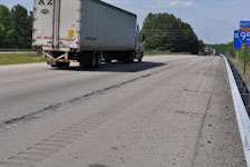
A coalition of safety advocacy groups sued to overturn the Federal Motor Carrier Safety Administration’s latest rewrite of the hours-of-service rule, the second time this month the new rule has faced a legal challenge. Advocates for Highway and Auto Safety, Public Citizen and the Truck Safety Coalition on Friday, Feb. 24, sued for judicial review of the final rule.
The groups successfully challenged FMCSA over a previous version of the rule. The latest regulation published December 2011 followed a legal settlement between the groups and the agency.
While the final rule retains the current 11-hour daily driving limit – FMCSA previously was in favor of reducing it to 10 hours – it reduces by 12 hours the maximum number of hours a truck driver can work within a week. Under the old rule, truck drivers could work on average up to 82 hours within a seven-day period; the new HOS final rule limits a driver’s workweek to 70 hours. FMCSA says it will continue to conduct data analysis and research to further examine any risks associated with the 11 hours of driving time.
In addition, truck drivers cannot drive after working eight hours without first taking a break of at least 30 minutes. Drivers can take the 30-minute break whenever they need rest during the eight-hour window.
The rule also requires truck drivers who maximize their weekly work hours to take at least two nights’ rest when their 24-hour body clock demands sleep the most – from 1 to 5 a.m. This rest requirement is part of the rule’s 34-hour restart provision that allows drivers to restart the clock on their workweek by taking at least 34 consecutive hours off-duty. The final rule allows drivers to use the restart provision only once during a seven-day period.
“Given the FMCSA’s mission to prevent truck-related deaths and injuries, it is appalling that the agency issued yet another rule that fails to adequately address truck driver fatigue,” said Henry Jasny, vice president and general counsel for Advocates for Highway and Auto Safety.
The American Trucking Associations on Feb. 14 also filed suit to have the rule reviewed. “We regret that FMCSA and the Obama administration have put ATA and its member companies in a position to take this legal action,” Bill Graves, ATA president and chief executive officer, said at the time the suit was filed. “The rules that have been in place since 2004 have contributed to unprecedented improvement in highway safety. The law is clear about what steps FMCSA must undertake to change the rules, and we cannot allow this rulemaking, which was fueled by changed assumptions and analyses that do not meet the required legal standards, to remain unchallenged.”











